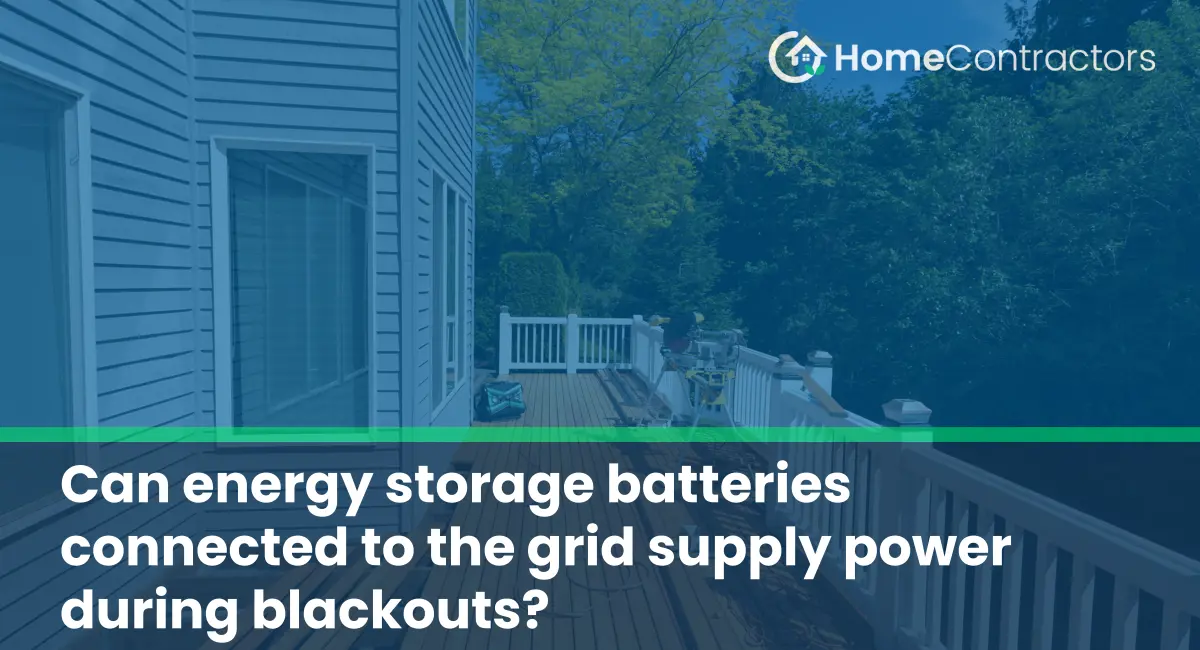Blackouts, or power outages, can occur due to a myriad of reasons such as extreme weather events, equipment failures, or maintenance work. These disruptions in the electricity supply can cause significant inconvenience and financial losses. To mitigate the impact of blackouts, energy storage batteries connected to the grid have emerged as a potential solution. This article explores the viability of utilizing energy storage batteries to supply power during blackouts and their implications on grid stability.
Understanding Energy Storage Batteries
Energy storage batteries are devices that store electrical energy from various sources, such as renewable energy systems or the grid itself, for later use. These batteries come in various types, including lithium-ion, lead-acid, and flow batteries, each with its own strengths and limitations. When connected to the grid, these batteries can serve as backup power sources, providing electricity during blackouts. However, several factors need to be considered to ensure the effectiveness and feasibility of using energy storage batteries in this manner.
Integration with the Grid
To supply power during blackouts, energy storage batteries must be effectively integrated with the electric grid. This integration involves the development of advanced hardware and software systems that allow for seamless communication and coordination between the battery systems and grid infrastructure. By monitoring the grid’s status and detecting any disruptions, the battery systems can activate and supply power to critical loads within milliseconds, reducing the impact of blackouts on consumers.
Capacity and Duration
The capacity and duration of energy storage batteries play a crucial role in determining their ability to supply power during blackouts. The capacity refers to the total amount of energy the battery can store, while the duration represents the time for which the battery can provide electricity before requiring recharging. These factors are influenced by the battery technology, size, and cost. To effectively handle blackouts, batteries must have sufficient capacity and duration to meet the demand of critical loads during the outage period.
Grid Stability and Quality of Supply
While energy storage batteries can provide backup power during blackouts, their integration with the grid should not compromise its stability or the quality of power supplied. Batteries connected to the grid must be able to respond rapidly to blackouts without causing voltage fluctuations, frequency instability, or other grid issues. Proper system design and control mechanisms are necessary to ensure that the grid remains stable and the supplied power is of high quality.
Economic Viability
The economic viability of using energy storage batteries for blackout mitigation is a significant consideration. The cost of acquiring and maintaining battery systems, along with the associated infrastructure and control systems, must be weighed against the potential benefits. Battery prices have been decreasing in recent years, making energy storage more affordable. Nonetheless, the overall cost-effectiveness varies based on the specific use case and the frequency of blackouts in a particular area.
Regulatory and Policy Considerations
The integration of energy storage batteries into the grid for blackout mitigation requires supportive regulatory and policy frameworks. These frameworks should incentivize the deployment of battery systems while addressing challenges such as grid interconnection standards, safety regulations, and financial incentives. Proactive engagement between policymakers, grid operators, utilities, and battery manufacturers is essential to create an enabling environment for effective grid-connected energy storage deployment.
Energy storage batteries connected to the grid have the potential to supply power during blackouts, mitigating the impact of electricity disruptions. However, for this application to be successful, several factors need to be considered, including integration with the grid, capacity and duration of the batteries, grid stability and power quality, economic viability, and supportive regulatory frameworks. Balancing all these aspects is crucial for maximizing the benefits of energy storage batteries as backup power sources and ensuring a reliable and resilient electricity supply during blackouts.
